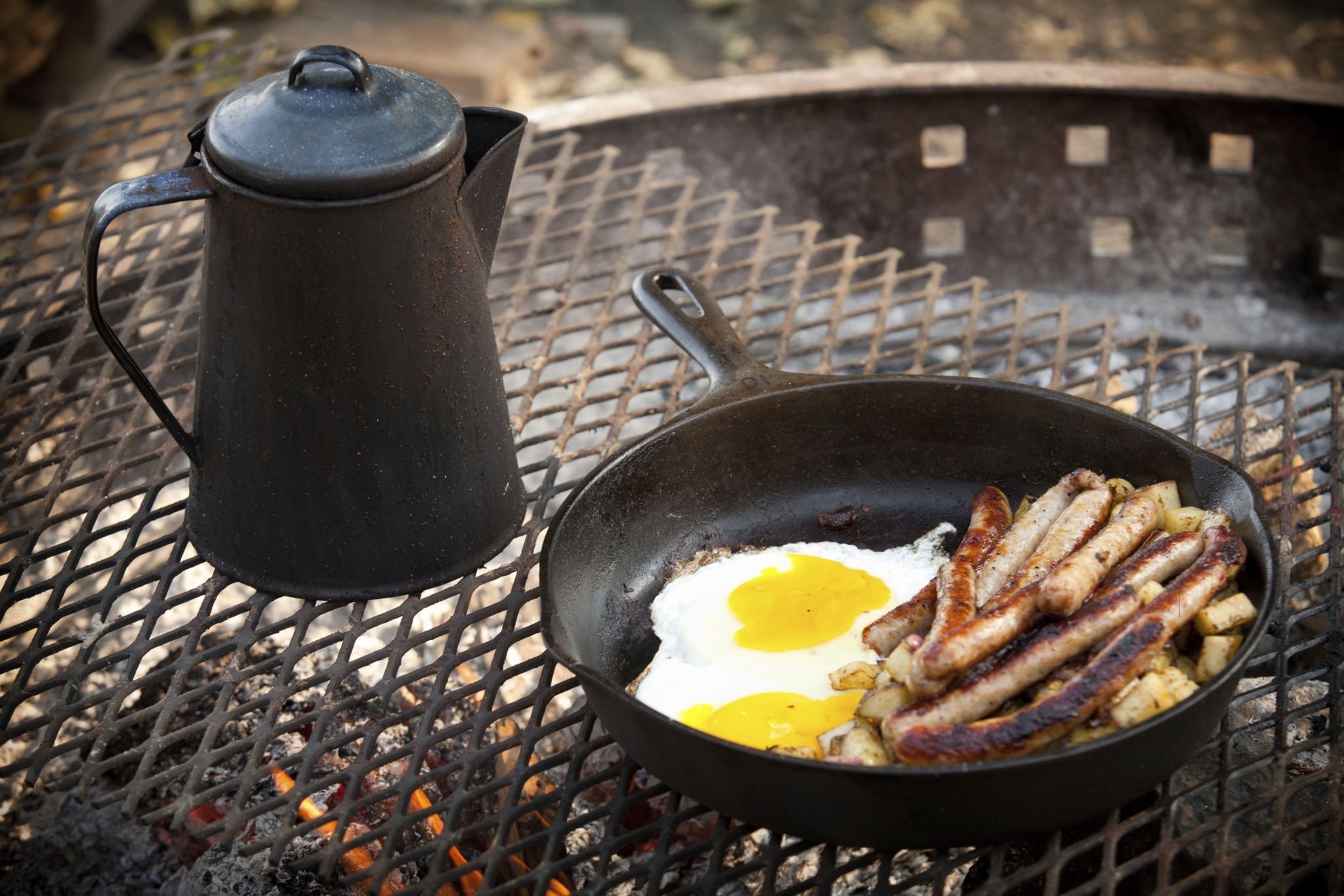The great outdoors offers an abundance of adventures, and hiking is one of the most exhilarating ways to connect with nature. Whether you’re embarking on a challenging mountain trek or exploring a scenic trail, fueling your body with a nutritious breakfast is essential for a successful hiking experience. In this article, we will delve into a collection of trailblazing breakfast recipes designed to energize and sustain you throughout your outdoor escapades. From hearty oatmeal to protein-packed wraps, these recipes will provide the perfect start to your day and ensure you stay fuelled and focused on the trail ahead.
Section 1: The Importance of a Nutritious Breakfast
Before we dive into the mouth-watering recipes, let’s understand why a nutritious breakfast is crucial for hikers. Breakfast acts as the foundation of your day, providing the energy and nutrients needed for physical exertion.
A well-balanced breakfast supplies carbohydrates for immediate energy, protein for muscle repair and recovery, healthy fats for sustained energy, and essential vitamins and minerals. It also kick-starts your metabolism, helping you burn calories efficiently. By consuming a wholesome breakfast before hitting the trail, you’ll enhance Sustained Energy Levels, Improved Performance and Endurance, Muscle Preservation and Recovery, Enhanced Mental Focus and Alertness, and Overall Health and Well-being.
- Sustained Energy Levels: Hiking often involves long hours of continuous physical activity, which requires a steady supply of energy. A nutritious breakfast provides complex carbohydrates that are slowly digested and released as glucose into the bloodstream, ensuring a sustained source of fuel for muscles throughout the hike. This helps prevent energy dips and keeps hikers feeling energized and focused.
- Improved Performance and Endurance: A breakfast rich in carbohydrates, proteins, and fats supports optimal performance and endurance during hiking. Carbohydrates provide the primary source of energy, while proteins aid in muscle repair and recovery. Healthy fats help maintain energy levels and provide necessary insulation for the body. By consuming a balanced breakfast, hikers can enhance their physical capabilities, endurance, and overall hiking experience.
- Muscle Preservation and Recovery: Hiking can lead to muscle fatigue and damage, especially during steep ascents or descents. A nutritious breakfast containing protein helps protect and repair muscles by providing the necessary amino acids. Adequate protein intake before a hike supports muscle preservation and aids in the recovery process, reducing the risk of injury and promoting faster healing post-hike.
- Enhanced Mental Focus and Alertness: Hiking requires concentration, navigation skills, and quick decision-making, especially in challenging terrains. A nutritious breakfast supplies the brain with glucose, its primary fuel source, enhancing cognitive function, mental focus, and alertness. This helps hikers stay sharp, make sound judgments, and navigate the trails safely.
- Hydration Optimization: Breakfast is an opportune time to hydrate before hitting the trails. Adequate hydration is vital for hikers to maintain proper bodily functions, regulate body temperature, and prevent dehydration. Pairing a nutritious breakfast with hydrating fluids, such as water, herbal tea, or fruit juices, helps kickstart the hydration process and ensures hikers begin their journey well-hydrated.
- Overall Health and Well-being: A nutritious breakfast contributes to overall health and well-being, supporting the immune system, promoting healthy digestion, and providing essential vitamins and minerals. By consuming a balanced breakfast, hikers can boost their immune system, reduce the risk of illness or injury, and support their body’s overall functioning during outdoor adventures.
Section 2: Energizing Ingredients for Hiking Breakfasts
To craft a breakfast that fuels your body for hiking, it’s important to incorporate ingredients that provide sustained energy and essential nutrients. In this section, we will explore some key ingredients that are perfect for energizing hiking breakfasts.
From whole grains and fruits to nuts and seeds, these ingredients pack a nutritional punch and keep you energized throughout your adventure. We will also discuss the importance of hydration and the role it plays in optimizing your breakfast for hiking.
- Whole Grains: Whole grains like oats, quinoa, and whole wheat provide complex carbohydrates that release energy slowly, providing a steady source of fuel. They also offer fiber, which aids in digestion and helps maintain stable blood sugar levels.
- Fruits and Berries: Fruits and berries are packed with natural sugars, fiber, and a wide range of vitamins and minerals. They provide a quick energy boost and can be easily incorporated into breakfast options like smoothies, oatmeal, or yogurt parfaits.
- Nuts and Seeds: Nuts and seeds, such as almonds, walnuts, chia seeds, and flaxseeds, are excellent sources of healthy fats, protein, and fiber. They provide sustained energy, help keep you feeling full, and offer essential nutrients like omega-3 fatty acids.
- Nut Butter: Nut butters, such as peanut butter or almond butter, are rich in healthy fats, protein, and fiber. Spread them on whole grain bread or incorporate them into smoothies or energy bars for a delicious and energy-dense addition to your hiking breakfast.
- Greek Yogurt: Greek yogurt is a protein-packed option that also contains beneficial probiotics. It provides a creamy texture to breakfasts like parfaits, smoothies, or overnight oats while offering a good source of calcium and other essential nutrients.
- Eggs: Eggs are a versatile source of high-quality protein, vitamins, and minerals. They can be prepared in various ways, such as scrambled, boiled, or made into omelets. Eggs provide sustained energy and support muscle recovery.
- Honey or Maple Syrup: These natural sweeteners can add a touch of sweetness to your breakfast while providing a quick source of carbohydrates. They can be drizzled over yogurt, oatmeal, or whole grain pancakes.
- Hydrating Foods: Incorporate hydrating foods like watermelon, oranges, cucumbers, or celery into your breakfast. These foods have high water content, helping to hydrate your body before you even hit the trail.
- Herbal Teas: Herbal teas like green tea or herbal blends can be a refreshing addition to your breakfast routine. They can provide a gentle energy boost, hydration, and antioxidant benefits.
Section 3: Mouthwatering Hiking Breakfast Recipes
Now, let’s dive into the heart of our article: the trailblazing breakfast recipes. In this section, we will present a variety of delicious and easy-to-prepare recipes that are perfect for fueling your hiking adventures. Each recipe will include detailed instructions and a list of ingredients, ensuring you have everything you need to whip up a satisfying and nutritious breakfast before hitting the trails. Here’s a sneak peek at some of the recipes we’ll explore:
- Power-Packed Oatmeal with Berries and Nuts
- Energizing Breakfast Burrito with Avocado and Black Beans
- Protein-Packed Quinoa Breakfast Bowl with Fresh Fruits
- Trail Mix Pancakes with Chia Seeds and Dark Chocolate
- Homemade Granola Bars with Dried Fruits and Seeds
- Overnight Chia Pudding with Coconut Milk and Mango
- Savory Egg Muffins with Spinach and Feta Cheese
Each recipe will be accompanied by tips for customization, make-ahead options, and suggestions for portable versions that you can enjoy on the go. We will also provide insights into the nutritional benefits of each recipe and how they contribute to your hiking performance.
Section 4: Tips for Hiking Breakfast Preparation
In this section, we will share some practical tips to help you prepare your hiking breakfasts with ease. From meal prepping and portioning to selecting lightweight and portable containers, these tips will ensure that your breakfast is ready for you to grab and go on your outdoor adventures. We will also discuss how to adapt the recipes for different dietary preferences and restrictions, such as vegetarian, vegan, and gluten-free options.
- Plan Ahead: Before your hiking trip, plan out your breakfast options and decide on the recipes you want to prepare. Consider the duration of your hike, the level of exertion, and the nutritional needs of your group.
- Pack Lightweight Ingredients: Choose lightweight ingredients that are easy to carry and won’t weigh you down. Opt for dehydrated or dry ingredients that can be rehydrated with water on the trail, such as oats, dried fruits, or powdered milk.
- Pre-Portion and Pack: Portion your breakfasts into individual servings or meal-sized portions before your hike. This will make it easier to distribute and consume during your trip. Use resealable bags, airtight containers, or food wraps to keep your breakfast items fresh and prevent spills.
- Consider Shelf-Stable Options: Choose ingredients that are shelf-stable and can withstand being without refrigeration for a day or two. This includes items like nut butters, dried fruits, granola bars, and packaged instant oatmeal.
- Prepare in Advance: Whenever possible, prepare components of your breakfast in advance. For example, you can pre-mix dry ingredients for pancakes or muffins and store them in a sealed container. This will save time and make breakfast preparation easier on the trail.
- Use Single-Serve Packets: If you prefer convenience and minimal cleanup, consider using single-serve packets of instant oatmeal, powdered drinks, or individual servings of nut butter. These are easy to pack and require only minimal preparation.
- Consider No-Cook Options: If you prefer not to cook breakfast on the trail, choose options that require little to no cooking. This can include overnight oats, energy bars, trail mix, or pre-made sandwiches.
- Bring the Right Utensils: Make sure to pack lightweight and compact utensils such as sporks or collapsible utensil sets. These will come in handy for mixing, eating, and cleaning up after your breakfast.
- Hydration is Key: Remember to pack enough water or bring a water filtration system to rehydrate your breakfast items or prepare beverages like coffee or tea.
- Follow Food Safety Guidelines: To ensure food safety, keep perishable ingredients like dairy or fresh fruits chilled until you’re ready to consume them. If you’re hiking in warm weather, consider using an insulated food bag or ice packs to keep your breakfast items cool.
Conclusion
In conclusion, starting your hiking day with a wholesome and energizing breakfast is vital for your overall enjoyment and performance on the trail. The recipes provided in this article offer a diverse range of options to cater to various tastes and dietary needs. By incorporating these trailblazing breakfasts into your hiking routine, you’ll be equipped with the energy, stamina, and sustained focus required to conquer any trail that lies ahead.
So, fuel up, lace up your hiking boots, and embark on unforgettable adventures with these nourishing breakfasts as your trailblazing companions.


